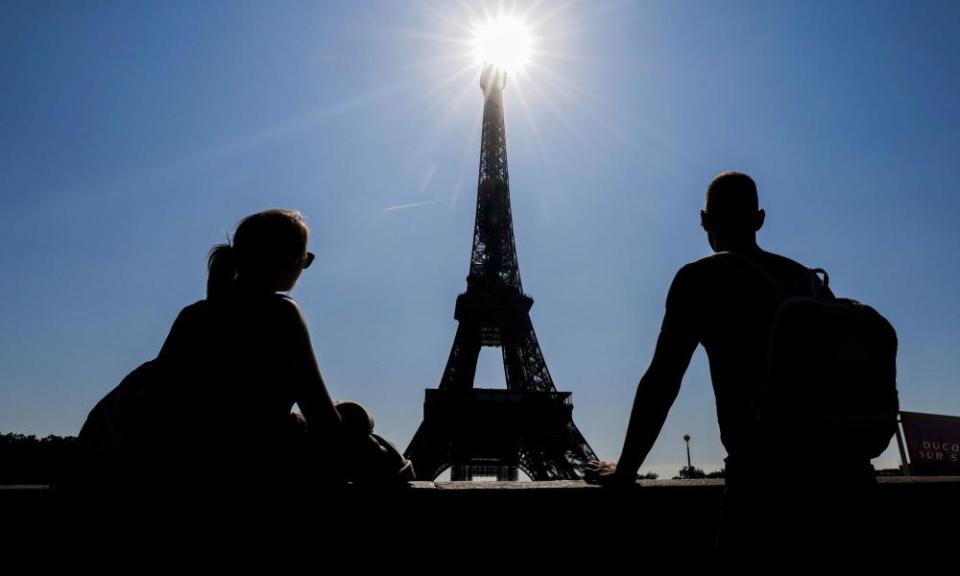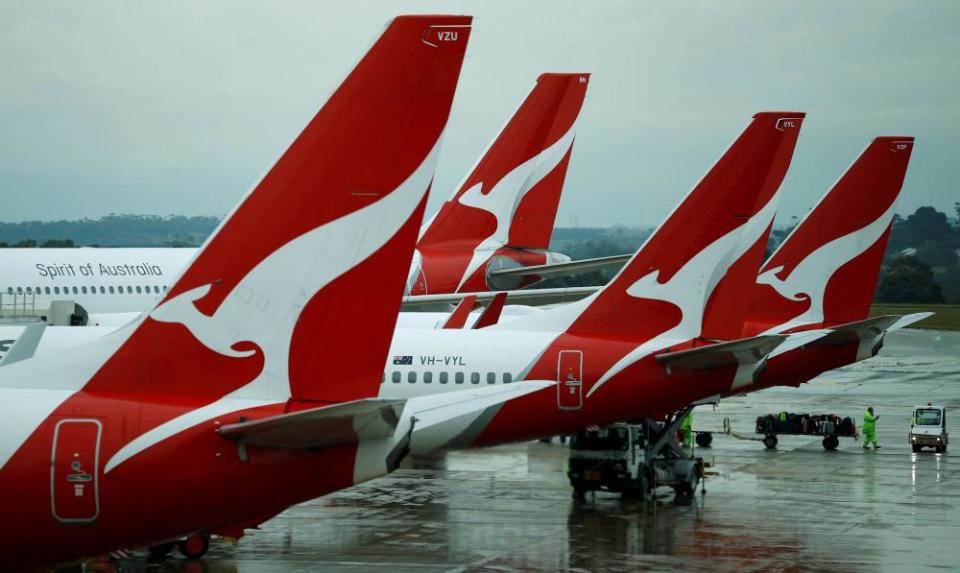The great Australian holiday gamble: can we Covid-proof our travel plans?

Travel is on the mind for many Australians at the moment, whether as a form of lockdown escapism, or an actual escape for those who aren’t currently stuck at home.
But given how suddenly states can impose travel restrictions, and fluctuating caps on international arrivals, booking an interstate or overseas trip in the next year carries risk: the trip could be cancelled without a refund or, worse, you could get stuck, unable to easily return home.
Dr Barbara Holland, a professor of mathematics at the University of Tasmania, teaches students how to use maths to make better decisions in the face of uncertainty. Holland says this can include working out whether to book a holiday in the time of Covid-19.
The process is simple: you write out what your choices are and what the possible outcomes are for each of those choices. You then assign a probability to those outcomes, and work out how bad it would be if those potential outcomes came true.
For example, one choice could be booking a trip to Paris in the middle of next year. You could go and come back without a hitch. The trip could be cancelled before you leave, which would be disappointing and potentially costly. Or you could go and have your return flight cancelled, and be stuck paying for an extended holiday in a foreign country.
Then you rank how bad each situation would be and how likely it is to happen. The problem: it’s hard to tell exactly how likely it is that border restrictions will kick in.
“You’d be making a really big assumption saying what the figure is going to be,” Holland says. “In the past, it’s worked super well for something like trying to work out the probability that my child will be a boy or a girl. But maybe not so well for predicting the future in an outbreak situation.”
In that case, Holland says you can apply a “maximin” strategy – you choose the option where if the worst thing happens, it is still better than the worst possible outcome of the other options.
“If you were maximining at the moment, you will probably never go on holiday. Because you’d always say, well, being stuck somewhere not being able to go home, that would be dreadful.”
Remaining at home would not be as bad, for example, as losing money on cancelled flights, or being stranded overseas. A driving holiday within your own state has less risk than an interstate journey, while a staycation is the lowest risk of all.
But with Qantas announcing new international flights commencing in December, you may want to take the gamble and book an overseas trip anyway. Especially since, Holland jokes, “the mental pleasure you get from planning your holiday, as we all know, is often better than the actual holiday”.
Related: How does Australia’s reopening plan stack up against the rest of the world and what can we learn?
So how can you mitigate the risks when planning a trip?
Given the most likely reason your trip would be cancelled right now is lockdowns or border closures, one might assume these circumstances would be covered by pandemic insurance.
Wrong. Jodi Bird, a travel expert at Choice, says he isn’t aware of any travel insurance – domestic or international – that covers cancellations due to Covid-19 lockdowns or government restrictions.

Most pandemic insurance packages will only cover the costs of cancelling your trip if you or someone you’re travelling with catches the virus. Some insurers will also cover cancellations if the accommodation you have booked has a positive coronavirus case and is required to shut down.
“Travel insurers need to state upfront whether their travel insurance covers Covid,” Bird says. “Because a lot of people are going to go and just buy travel insurance presuming that’s going to cover … travel restrictions or even if they get Covid, and that’s not necessarily going to be the case for all insurance.”
But he says “there’s also the onus on the consumer to have a look at [what the policy covers] and know what you’re actually buying”.
Bird suggests would-be travellers take the following three precautions before committing to a holiday during the pandemic:
1. Read the travel insurance product disclosure statement
Before purchasing any kind of travel insurance, Bird recommends reading the product disclosure statement – a document that outlines all the situations in which your insurance will apply.
But Bird acknowledges that often the policy documents aren’t clear or transparent, even if you have excellent English, let alone if English is your second language. He recommends calling the travel insurance provider you are considering to clarify the coverage and ask any questions before making a purchase.
“When you call the travel insurer, the call is generally recorded, and that’s kept as a transcript. So if you call them and say, does this cover me for Covid-19 if I get it, or does it cover me for government travel restrictions, the answer will be recorded and that will be your proof later on if you have a problem with the travel insurer when it comes time to claim,” Bird says.
“That will also help clarify up front exactly what they are trying to say in their convoluted terms and conditions.”
2. Book flexible airfares and accommodation packages
While pandemic insurance won’t cover you for lockdown-related cancellations, some accommodation and airline providers will refund or credit your booking if Covid-19 prevents you from travelling.
A Flight Centre spokesperson, Haydn Long, says that during the height of the pandemic their team in Australia alone helped customers secure about $1.5bn in refunds from airlines, hotels and other suppliers, and helped thousands of customers successfully change their travel plans.
Related: Qantas posts $1.83bn loss but hopes to resume international flights by December
But Long cautions that while customers have typically been able to amend their bookings, policies vary from supplier to supplier and “not every airline or hotel will automatically offer a refund, so it pays to ask or check at the time of booking”.
3. Get your cancellation policy in writing
While many travel providers are willing to help people out, Bird says Choice is aware of a few “unscrupulous providers” that don’t offer flexible bookings up front and won’t give customers refunds if travel restrictions are imposed.
He recommends always getting something in writing before you book any accommodation or airfare to clarify the policy on what happens if travel restrictions make the holiday impossible.
“Even if it’s a caravan park, check the website, have a look at their terms and conditions and see if it is written there,” Bird says.
“Some of the smaller providers might not even have updated [their policies around Covid-19 cancellations] on their website, but they might still have that policy unofficially.”

 Yahoo Movies
Yahoo Movies 